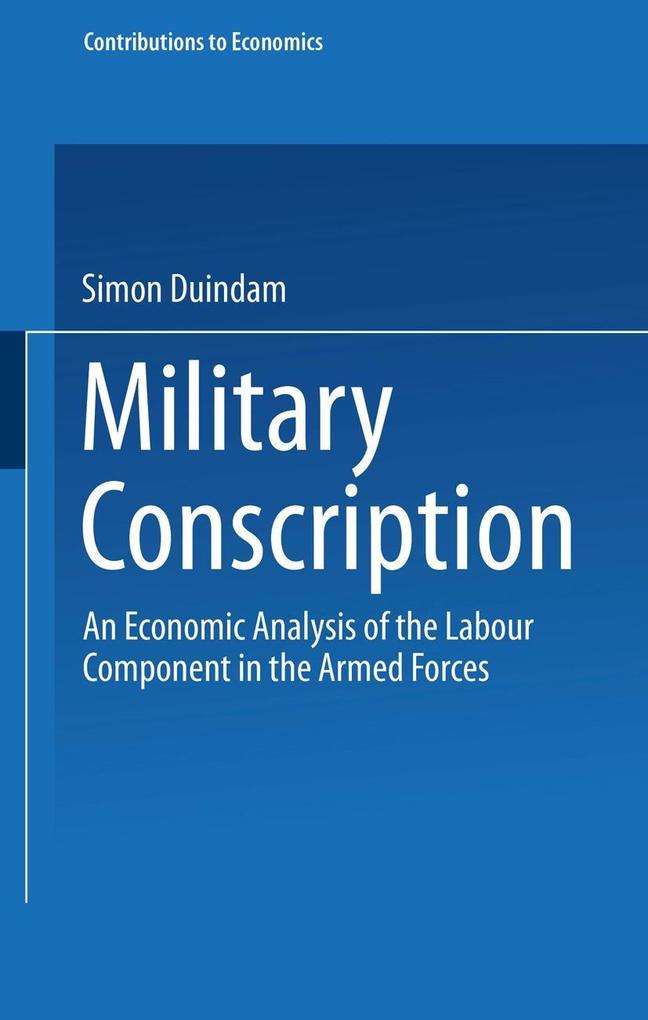
Sofort lieferbar (Download)
In this book, entitled "Military Conscription: an economic analysis of the labour component in the armed forces", military conscription is regarded as an eco nomic policy to minimize the cost of labour in the armed forces. The economic cost of conscription becomes clear when we analyse the opportunity costs of conscription. If conscripts were free to choose whether to join the armed forces, many would not under the present day conditions, since for them the costs of conscription far outweighs the benefits. The principle of opportunity costs is always central in the economics of warfare. In this book the analysis begins with an investigation of these oppor tunity costs and then uses the results to analyse the formation of an all-volunteer force, which will in fact be achieved, if everything proceeds according to schedule, by 1998. Chapter one concentrates on the structure of the thesis. One of the cor nerstones is welfare economics. Welfare economics uses a mechanical view of the state. Translated to military conscription this means that the welfare of the conscript is a central point in the analysis of the economic aspects of military conscription. Also important is the fact that the concept of welfare concentrates on scarcity. Due to conscription the aspects of scarcity of labour in the armed forces are very weak, if not absent.
Inhaltsverzeichnis
1. Economics and Conscription. - 2. The Public Good Defense . - 3. The History and Existence of Conscription in the Netherlands. - 4. The Conscription Tax. - 5. Conscription and the Allocation of Production Factors. - 6. The Demand for and the Supply of Volunteers. - 7. The Interaction Between Society and the Armed Forces. - 8. The Transformation of a Conscription Force into an All-Volunteer Force. - 9. Social Conscription. - 10. Summary. - References.
Mehr aus dieser Reihe
Produktdetails
Erscheinungsdatum
17. April 2013
Sprache
englisch
Untertitel
An Economic Analysis of the Labour Component in the Armed Forces.
Sprache: Englisch.
Dateigröße in MByte: 22.
Seitenanzahl
203
Dateigröße
21,53 MB
Reihe
Contributions to Economics
Autor/Autorin
Simon Duindam
Verlag/Hersteller
Kopierschutz
mit Wasserzeichen versehen
Produktart
EBOOK
Dateiformat
PDF
ISBN
9783642500053
Entdecken Sie mehr
Bewertungen
0 Bewertungen
Es wurden noch keine Bewertungen abgegeben. Schreiben Sie die erste Bewertung zu "Military Conscription" und helfen Sie damit anderen bei der Kaufentscheidung.



































